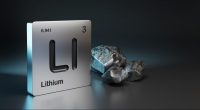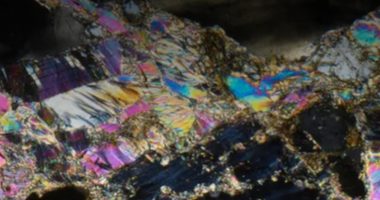When psychologist Timothy Leary advised Americans to ‘turn on, tune in, drop out’ in 1966, he was thinking of psychedelic drugs – in this case, LSD – mainly in terms of its recreational use.
Now there’s an emerging body of research suggesting the true value of psychedelics might be found in treating psychiatric conditions such as post-traumatic stress disorder (PTSD) and persistent depression.
Moreover, a flurry of recent announcements in the pharmaceutical industry space, has pointed to the possibility of Australia leading the way when it comes to innovation here. But how efficacious might these drugs be?
The times they are a-changin’
Just to be clear, these treatments are still not easily accessible and they’re expensive.
However, there was a surprise decision from Australian Government agency the Therapeutic Goods Administration (TGA) in February last year, which enabled two psychedelics – psilocybin and MDMA – to be used in a clinical environment for treatment of depression and PTSD respectively, under prescription from authorised psychiatrists.
That decision entailed the TGA re-categorising the two as ‘Schedule 8’ drugs (or controlled substances) when used under clinical conditions, but they would remain prohibited (or ‘Schedule 9’ drugs) in other contexts.
The market and scientific world was somewhat surprised by this announcement, since the TGA had previously rejected attempts to reclassify psychedelics, with earlier decisions in February 2020, December 2021 and October 2022.
Some psychology and psychiatry experts also expressed concern about the TGA’s turnaround, advising against large-scale implementation of treatment unless further evidence was generated about not only the positive, but potential adverse effects, of psychedelic drug usage by people experiencing these conditions.
Nevertheless, the pharmaceutical industry responded quickly, with several companies announcing trials and treatments with the drugs in question.
The race is on
Mid last year, Emyria (ASX:EMD) – a Perth-based company which had only listed three years earlier – began its first trial to test the efficacy, safety and cost-effectiveness of MDMA therapy for the treatment of PTSD. The research was undertaken at Emyria’s Pax Centre, where the company was also conducting research into psilocybin-assisted therapy.
In January, Little Green Pharma (ASX:LGP) announced that its psychedelic-focused subsidiary Reset Mind Sciences had kicked off its own trial into the clinical use of psilocybin (magic mushrooms) to treat depression, with this being conducted through the Harry Perkins Institute and Fiona Stanley Hospital, both in Perth.
In March, Melbourne-based company Vitura Health (ASX:VIT) – through its joint venture Cortexa – reached a national milestone, being the first Australian company to prescribe psilocybin to a patient outside the context of a clinical trial.
Emyria managing director Mike Winlo said the twin factors of changing government perspective and pharmaceutical research into psychedelics meant better options for people dealing with persistent mental health conditions.
“There’s certainly very compelling evidence that MDMA given alongside psychotherapy can have huge benefits for patients with PTSD,” he said.
“Two major stage three trials are completed, both showing great results. The TGA has moved to reschedule these drugs and now the FDA (US Food and Drug Administration) is seriously considering approving of these drugs for the treatment of this condition.”
Dr Winlo added that this would be a crucial development, given the lack of truly effective treatments for post-traumatic stress disorder in particular.
“In the landscape we’re in, a number of patients – up to 50 percent – have resistance to the best treatments to date,” he said.
“It’s fantastic to have another option that we can provide to those patients and certainly the results that we’re seeing from these studies are looking really encouraging.
“We’re hoping to see those results translate into the real world of patient experience.”
A good trip
Georgia is one Australian who has felt the positive effects of psilocybin on her mental health, and recommends it could be an avenue for people with persistent anxiety and depression.
She described the physical effect of the drug as being one of ‘feeling lighter, a bit more relaxed’.
“And mentally, I felt I had a new perspective… the hallucinogenic effect of the psilocybin is that it can bring you that new perspective.”
Georgia said she found that sometimes her change of perspective would continue for some time, enabling a breakthrough in mindset.
“You might have that new perspective stay with you, or you may feel this lightness because of the perspective you gained during this experience,” she said.
“If I’d taken psilocybin on the weekend, the following week I’d feel a lot lighter and I’d feel like I could test out that new perspective or bring this new perspective or lightness with me.”
However, Georgia acknowledged there were risks in using psilocybin and she had been careful to avoid addiction. She said a safe and controlled environment was important.
Dr Winlo also emphasised the importance of following the framework for treatment laid out by the TGA decision last year.
“In legal terms, the only allowable mainstream access pathways require supportive psychotherapy by trained therapists and oversight by specialist psychiatrists,” he said.
Providing for that demand
What is available to patients right now is MDMA-assisted therapy, which means the drug is made available to patients within a strict clinical setting, and psychiatrists are only permitted to prescribe it once they can show they have the resources to ensure safe delivery.
Dr Winlo said the demand for this treatment was significant.
“There are a million Australians with PTSD, half of those are treatment-resistant, and two thirds of those qualify for MDMA-assisted therapy on top of that, so we’re talking about a massive opportunity with hundreds of thousands of potential patients,” he said.
“This seems to be a very effective treatment for those patients, so I expect there to be a high demand for this market, and a big opportunity.
“The key thing is figuring out how to deliver these services on a scale that will be commercially viable.”
Looking at a price point
The latter point is the one most people who would like access to these news treatments will be interested in: How much will it cost?
“We’re talking about a treatment that’s very intensive in terms of therapists’ time, and it’s also a scarce resource in terms of drug availability: So it’s about $30,000 for a 12-week program,” Dr Winlo said.
“Now that might sound like a lot, but the cost is in context. A hospitalisation for PTSD can easily exceed $40,000 per admission, and for those patients that are really unwell, they are often facing multiple admissions over a lifetime, not to mention the loss of return to work and the impact on families.”
Dr Winlo recommended that people interested in MDMA therapy should take the first step of speaking to their GP or specialist for advice.
Market performance
As far as investing in these stocks goes, the clinical trials are always a slow burn. And, add to that, due to the nature of psychedelics, there will be very close monitoring required for any trials undertaken. That’s costly.
Emyria’s work has attracted the attention of Andrew Forrest’s private investment group Tattarang Ventures which bought 20 million shares last September at 15 cents. But it’s been a downhill run since, Emyria was trading below 6 cents (19 April).
Little Green Pharma’s been trading around 14 cents, and Vitura Health has been at 16.5 cents on market, down from nearly 60 cents last July.
If any of the subject matter raised in this article is distressing to you, you’re advised to seek support from Beyond Blue on 1300 22 4636, (beyondblue.org.au) or Lifeline Australia on 13 11 14 (lifeline.org.au).
Disclaimer: All medicines carry risks and specialist prescribers, such as registered psychiatrists, are best placed to assess the suitability of a new medication against a patient’s individual circumstances and medical history before proceeding. Adverse effects of psilocybin can include temporary increase in blood pressure and a raised heart rate. Adverse effects of MDMA include high blood pressure, increased pulse rate, faintness, and panic attacks, and in some rare cases it can cause loss of consciousness or trigger seizures. Other side effects include involuntary jaw clenching, decreased appetite, restless legs, nausea, headache, sweating and muscle/joint stiffness. These effects of psilocybin and MDMA are unlikely at low doses in the treatment regimens used in psychedelic-assisted psychotherapy while appropriately managed in a controlled environment with direct medical supervision.



-1200x645-380x200.jpg)


